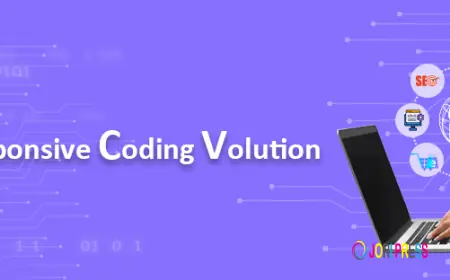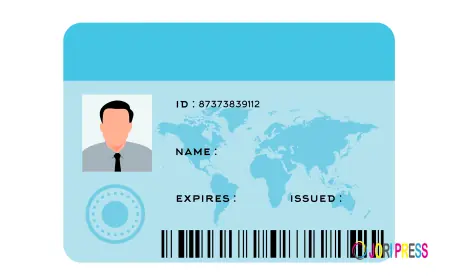Can Coding Classes Improve Children’s Attention Span? Here’s What Studies Say
if you're wondering whether it’s worth signing your child up for online coding classes for kids, the answer — backed by both science and real-life stories — is a resounding yes. Not just for the tech skills, but for the powerful life skills that come with them. Skills like focus, grit, and attention — the very ones our children need most.
In today’s hyper-digital world, children are exposed to a whirlwind of stimuli from an early age — YouTube videos, mobile games, social media apps, and smart toys. As these stimuli become increasingly fast-paced and attention-grabbing, concerns have grown among parents, educators, and mental health professionals about their impact on children's ability to focus. Attention span — once defined as the period a child can concentrate on a task without becoming distracted — is now a hot topic in discussions about healthy child development.
Enter coding classes. Often viewed as a future-proof skill to ensure career readiness, coding is now being examined from a developmental perspective. Can learning to code actually improve a child’s attention span? Could structured digital learning be the antidote to unstructured screen time? Surprisingly, a growing body of research suggests that the answer might be yes.
This blog dives deep into the research, psychological theories, and anecdotal evidence surrounding the impact of coding classes for kids on attention span, and explores whether this new digital discipline is doing more than just teaching tech.
The Attention Span Crisis: A Real Concern?
Before exploring how coding might help, it’s essential to understand what we're up against. The average human attention span has shrunk significantly over the past few decades. According to a widely-cited 2015 Microsoft study, our attention span had dropped from 12 seconds in 2000 to just 8 seconds — shorter than that of a goldfish. While the study has received some criticism for its methodology, the broader point resonates with educators: children today are struggling to sustain focus.
The causes are multifactorial. Fast-paced media, multitasking, lack of physical activity, and sleep disturbances all contribute. But the most significant culprit appears to be unregulated screen time. A study published in JAMA Pediatrics found that higher levels of digital media use in children were associated with later diagnoses of Attention-Deficit/Hyperactivity Disorder (ADHD).
At the same time, schools and parents have been doubling down on “productive” screen time — educational apps, e-books, and yes, coding classes for kids. The question becomes: Can this structured screen engagement reverse or mitigate the damage caused by digital distractions?
The Cognitive Demands of Coding
Learning to code is no walk in the park. Even beginner-level coding requires a suite of cognitive skills — logical reasoning, sequencing, abstraction, and problem-solving — that demand sustained mental engagement. Unlike passive screen time, where kids simply consume information, coding turns them into creators. It invites them to think deeply about a problem, develop a plan, test it, troubleshoot it, and refine it.
In a 2021 study published in Computers & Education, researchers observed primary school students who participated in a 10-week coding program using Scratch, a beginner-friendly programming language developed by MIT. The findings showed a significant improvement in executive functions — a set of mental skills that include working memory, flexible thinking, and self-control. Improved executive function directly correlates with longer attention spans.
Neuroscientists have also weighed in. Dr. Christof Koch, a leading brain researcher, suggests that challenging, interactive tasks like coding activate the prefrontal cortex — the part of the brain responsible for focus and attention. Coding not only exercises the brain but rewires it to handle complex tasks with greater efficiency.
Not All Screen Time Is Created Equal
To appreciate the difference between mindless scrolling and mindful coding, we need to understand the concept of “active vs. passive” screen time. Passive screen time includes watching videos or playing simple tap-based games that require minimal mental effort. Active screen time, on the other hand, includes activities like interactive educational games, creative apps, and yes, online coding classes for kids.
Coding falls firmly into the “active” category. It’s interactive, often collaborative, and cognitively demanding. When children code, they’re not zoning out — they’re fully engaged, testing hypotheses, and learning from errors. This type of mental engagement is what cultivates focus.
In fact, studies have shown that children who participate in structured technology-based learning experiences — such as robotics clubs, coding competitions, or STEM challenges — often show marked improvements in attention, perseverance, and goal-setting.
Real-World Evidence from Classrooms and Homes
Research aside, there’s strong anecdotal support for the attention-enhancing power of coding. Teachers who incorporate coding into their curriculum often report that students who usually struggle to focus are surprisingly engaged when working on coding projects. Why? Because coding taps into intrinsic motivation.
Coding gives immediate feedback. If your code works, it works. If it doesn't, you instantly know, and you're encouraged to find out why. This immediate cause-and-effect loop is inherently satisfying for children and provides a sense of accomplishment that keeps them engaged for longer periods.
Parents too have noticed a difference. In households where children regularly engage in coding projects, many parents report longer periods of independent play, better problem-solving skills, and reduced restlessness.
Mindfulness in Motion: Coding as a Flow Activity
Psychologist Mihály Csíkszentmihályi introduced the concept of “flow” — a mental state where a person is fully immersed in an activity, losing sense of time and distraction. Coding, for many children, seems to trigger this flow state.
A 2019 study in the British Journal of Educational Psychology found that students engaged in coding tasks experienced higher levels of concentration and emotional regulation compared to traditional math exercises. These findings suggest that coding not only improves attention in the moment but may also build habits that support longer-term focus and discipline.
The Role of Gamification in Coding Education
One of the reasons coding classes are so engaging is the gamified format used by many platforms. Children earn badges, level up, or unlock rewards as they complete lessons. This gamification keeps them hooked — but in a way that promotes active learning rather than passive entertainment.
Platforms like Code.org, Tynker, and Scratch not only teach coding concepts but also keep children immersed in challenges that require sustained attention. They mimic the reward systems found in video games — but instead of manipulating a dopamine loop for profit, these platforms use it to keep kids learning.
However, it’s important that gamification doesn’t replace deeper learning with shallow wins. The best platforms balance instant gratification with meaningful skill development, ensuring kids stay engaged without becoming reward-dependent.
Customisation and Adaptive Learning Keep Kids on Track
One of the greatest strengths of modern coding programs is personalisation. Adaptive learning systems can tailor lessons based on a child’s pace, strengths, and weaknesses. This ensures that children are neither bored nor overwhelmed — two key reasons kids lose focus in traditional classrooms.
When children receive content that is “just right,” they’re more likely to remain engaged. The content is neither too easy (leading to distraction) nor too hard (leading to frustration). This personalised challenge sweet spot is where attention thrives.
Building Grit and Perseverance
Another cognitive muscle strengthened through coding is perseverance — the ability to keep going despite setbacks. Debugging code can be frustrating, and the process of identifying errors requires patience and sustained attention.
This type of slow, steady problem-solving builds “grit,” a trait that psychologist Angela Duckworth argues is more important for success than IQ. Grit and attention span are deeply interconnected — both require the ability to resist distraction and stay focused on long-term goals.
In coding, failure is not a setback but a step in the process. Kids learn that mistakes aren’t bad — they’re simply part of getting to the right answer. This reframing has powerful implications for how they handle challenges in other areas of life, including academics.
Potential Limitations and Cautions
While coding offers many benefits, it's not a silver bullet. Like any tool, it’s most effective when used thoughtfully. Here are a few caveats:
-
Too much of a good thing: Long hours of any screen-based activity, even coding, can lead to eye strain, reduced physical activity, and poor sleep. Balance is essential.
-
Quality matters: Not all coding classes are created equal. Poorly designed courses with little interaction or challenge may do little to improve attention and may even contribute to screen fatigue.
-
Needs vary: Coding might not be every child’s cup of tea. Some children may benefit more from hands-on, offline activities to build focus.
That said, when integrated into a balanced schedule and delivered through well-designed platforms, coding can be a powerful tool for cognitive development — especially in fostering attention, patience, and focus.
Final Thoughts: Structured Screens Can Support a Stronger Mind
In a world where screens are often seen as the enemy of focus, coding emerges as a surprising ally. The process of learning to code — with its emphasis on logic, problem-solving, and persistence — encourages children to engage deeply with tasks over extended periods.
Unlike the passive consumption of content on social media or streaming platforms, coding demands mindfulness and intent. It channels a child’s natural curiosity into structured problem-solving and fosters habits that are essential for academic and personal growth.
As we navigate this digital age, it’s not just about limiting screen time — it’s about elevating it. By steering our children toward meaningful digital experiences, we can help them thrive in the very world that often distracts them.
So, if you're wondering whether it’s worth signing your child up for online coding classes for kids, the answer — backed by both science and real-life stories — is a resounding yes. Not just for the tech skills, but for the powerful life skills that come with them. Skills like focus, grit, and attention — the very ones our children need most.
What's Your Reaction?
 Like
0
Like
0
 Dislike
0
Dislike
0
 Love
0
Love
0
 Funny
0
Funny
0
 Angry
0
Angry
0
 Sad
0
Sad
0
 Wow
0
Wow
0















































